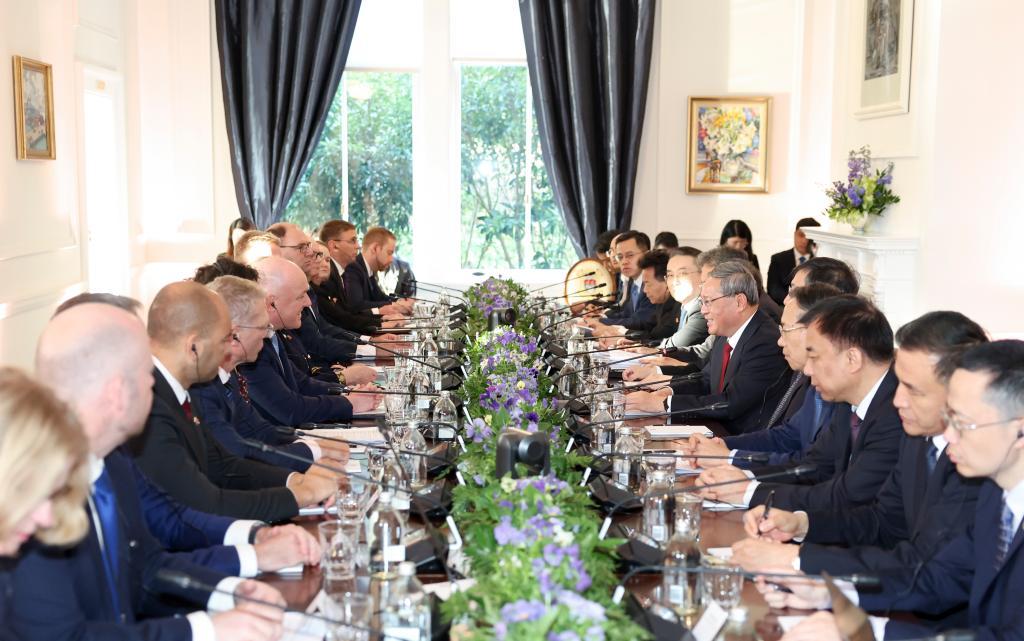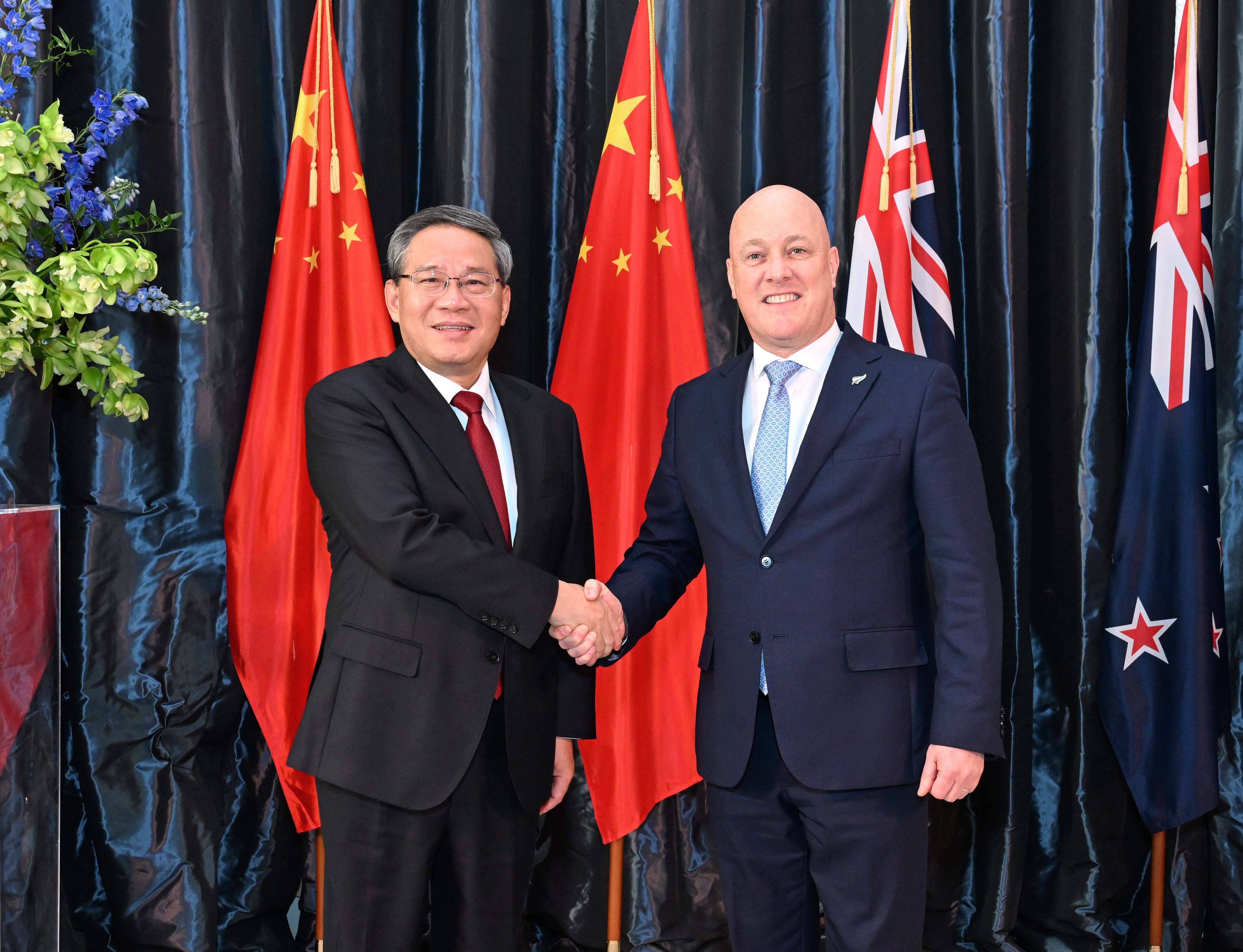Chinese Premier Li Qiang meets New Zealand Prime Minister Christopher Luxon in Wellington, New Zealand, June 13, 2024. [Photo/Xinhua]
By Azhar Azam
On June 13, Chinese Premier Li Qiang met New Zealand Prime Minister Christopher Luxon and the two leaders acknowledged the positive development in the bilateral relationship. They also agreed to build greater understanding through regular dialogue on foreign affairs, trade and economy, agriculture and other areas, reaffirming the importance of consultation to address regional and global challenges.
A joint statement of the outcomes of the two leaders' meeting was released later Thursday. China announced it will include New Zealand in the list of unilateral visa-free countries. Ahead of Li's visit, Luxon had said the trip was a "valuable opportunity" for exchanges, describing New Zealand ties with China as "significant" and "resilient."
Beijing is Wellington's largest export destination and New Zealand has been one of China's closest partners in the region. Economy is Luxon's top priority and he's confident that trade with China will support his government's goal of increasing exports twofold over the next decade.
The progress in the development of bilateral relations was applauded by New Zealand Trade Minister Todd McClay, who during Chinese Foreign Minister Wang Yi's visit this March described the upgraded bilateral free trade agreement as an "important example" of expanding Beijing-Wellington partnership in economy, trade and personnel exchanges amid rising trade barriers and uncertainties.
Wellington is also a member of the Regional Comprehensive Economic Partnership. The agreement, seen as a commitment to peace, stability and prosperity, is strengthening trade and economic integration in the Asia-Pacific and is projected to add $186 billion to the world economy and $2 billion to New Zealand's GDP in future.
The prospects are breathtaking, yet in order to tap the real potential of the landmark treaty, regional peace and stability must be safeguarded against U.S.-led efforts to push the member states at each other's throat as it urges countries across the region to join hands in "maintaining peace" in the Asia-Pacific.
Li's visit coincides with 10 years of the China-New Zealand comprehensive strategic partnership. This high-level engagement shows both sides' willingness to set aside differences and that they are committed to deepening relations, which would help to better understand each other's viewpoints on regional security and other issues.

Chinese Premier Li Qiang holds talks with New Zealand Prime Minister Christopher Luxon in Wellington, New Zealand, June 13, 2024. [Photo/Xinhua]
For instance, Wellington is mulling to join the AUKUS, a trilateral nuclear alliance of Australia, UK and the U.S. designed to imperil regional peace by stoking tensions and triggering a nuclear arms race in the Asia-Pacific. A recent comment by U.S. Deputy Secretary of State Kurt Campbell signals the pact seeks to wheedle regional nations into doing something that will have serious repercussions for regional peace, stability and prosperity.
Former New Zealand Prime Minister Helen Clark has warned that joining the AUKUS would undermine New Zealand's independent foreign policy. Others have questioned the military alliance's aim of containing China and its impact on New Zealand's nuclear-free policy, regarding it as an effort to establish a new regional security grouping.
Any threat to China will inevitably weaken the regional economy and peace as China, a significant international player, is deeply integrated into the regional and global economy. Any attempt to inhibit its growth will negatively affect the economies of other countries, including New Zealand.
Li's visit is an opportunity for New Zealand to explore "massive areas of cooperation;" it could help promote regional peace through discussion on multiple regional and global challenges such as the growing number of security alliances in the region, climate change, pandemics and U.S. exceptionalism.
Beijing-Wellington bilateral trade, according to New Zealand, has leapfrogged to over $23 billion for the year ending March 2024. China's growing emphasis on a healthy lifestyle, outdoor activities and high-quality dairy, meat and innovative products can also manifest in many positive outcomes for Wellington. It can push demands for New Zealand products and it can also promote ecotourism.
As described by Luxon, the "significant economic relationship" between China and New Zealand, benefiting the people and economies of the two countries, seeks a cohesive approach to regional stability and prosperity that will reinforce the bilateral comprehensive strategic partnership and contribute to regional peace and growth.
Azhar Azam, a special commentator on current affairs for CGTN, works in a private organization as a market and business analyst and writes about geopolitical issues and regional conflicts.

 中文
中文




